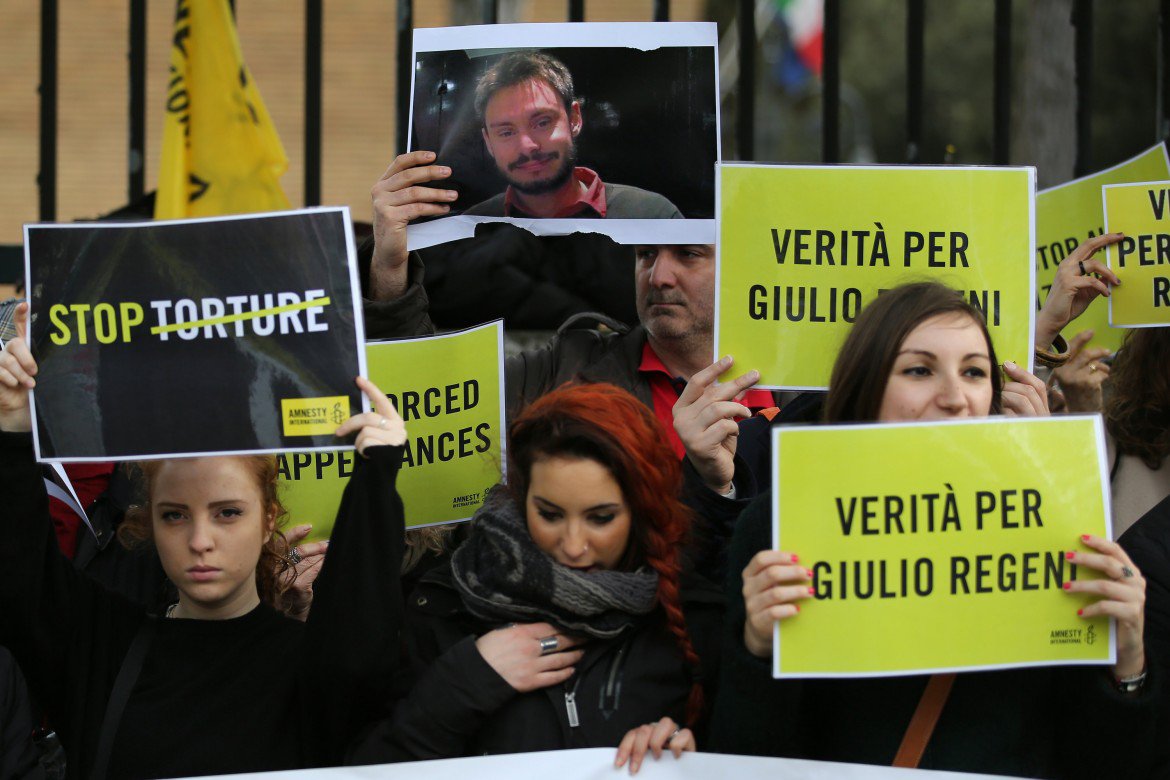Commentary
No, Cambridge University was not responsible for Giulio Regeni’s death
Academics in Italy respond to press reports blaming Giulio Regeni’s supervisors for not protecting him.

We, Italian teachers, students and graduate students, reject intimidation from whomever it comes: We will continue to do our job.
In Italy, for weeks after the barbarous assassination in Cairo of Giulio Regeni, there has been a campaign in the press to discredit the Cambridge University faculty, accused of irresponsibility for putting the young researcher in danger. The outline of Regeni’s murder, concealed under the omerta of Egyptian authorities, is nonetheless clear, and to point to Cambridge is a cynical shift of blame.
Experimental research can be done only one way: in the field. To accuse covertly — or worse, explicitly — Regeni and his academic advisers in Britain or at the American University of Cairo of any responsibility is all the more outrageous because even the Egyptian government and its security apparatus hasn’t done that.
We must reject and condemn, forcefully and decisively, all attempts to justify censorship and the repression of freedom of research, when it addresses issues that are not acceptable to the political powers and the security apparatus — in Egypt and elsewhere. If this were not so, it would mean condemning to death the scientific research that is based on simple and, at the same time, essential criteria: to discuss, to debate, to compare methods, to reveal and discover unknown areas, to deconstruct portrayals, to re-read and contextualize the events and people that are objects of study. The results of scientific research, in any field, cannot, nor should they be conditioned or turned into instruments of foreign interests that are political, economic or religious.
It is an imperative duty of the Italian government to demand that the Egyptians clarify all the circumstances under which Regeni was arrested and suffered unspeakable torture and death. The Italian government owes this to Regeni’s family, to the teachers and the students of Cambridge, and to all of us, because it is up to the state and not the university to ensure the safety of citizens.
It is equally necessary on our part to demand the press to stop the mad rush for scoops based on allegations and falsehoods, which damages the work of research and researchers. This attitude of the Italian press has actually endangered Italian researchers abroad, particularly those operating in conflict zones and in countries under authoritarian regimes.
First Signatories:
Jean Ziegler, Erika Deuber-Ziegler, Danilo Zolo, Gustavo Gozzi, Andre Scozzafava, Riccardo Bellofiore, Giorgio Forti, Sandro Mezzadra, Mauro Spotorno, Massimo Stefani, Paola Manduca, Luca Scacchi, Peter Basso, Andrea Balduzzi, Ana Lourdes de Heriz, Rosita Peri, Alessio Vieno, Michela Lenzi, Renato Miceli, Mariagrazia Monks, Chiara Volpato, Maria Grazia Noons, Alida Clemente, Fiorenzo Fantaccini, Patrizia Meringolo, Roberto De Vogli, Francesca Biancani, Fabio De Nardis, Chiara Maritato, Joseph Halevi, Antonio Ciniero Joseph Micciarelli, Antonio Moscato, Vincenzo Wellness, Guglielo Forges Davanzati, Enrico Pulieri, Stefano Pasta, Alberta Giorgi, Angelo Salento, Giuseppe Acconcia, Fabio Sulpizio, Paola Medici, Nicola Perugini, Giuliano Franceschini, Riccardo Soliani, Ulderico Daniele, Luca Guzzetti, Luciano Nuzzo, Angelo Stefanini, Michela Varra, Anna Granata, Cinzia Nachira, Margherita Monti, Alberto Di Cintio, John Gilbert, Franco Montanari, Paola Magillo, Simonetta Peccenini, Elena Zappa, Massimo Quaini, Nadia Breda, Andrea Martini, Lara Makeup, Marina Rui, White Gustavino, Maria Letizia Ruello, Bruno Catalanotto, Alessandro Zennaro, Nunziatina De Tommasi, Jose Vincenzo Molle, Mauro Parodi, Nando Bands, Marilena Carnasciali, Andrea Peru
Originally published at http://ilmanifesto.info/caso-regeni-basta-accuse-ai-ricercatori/ on 2016-03-03
